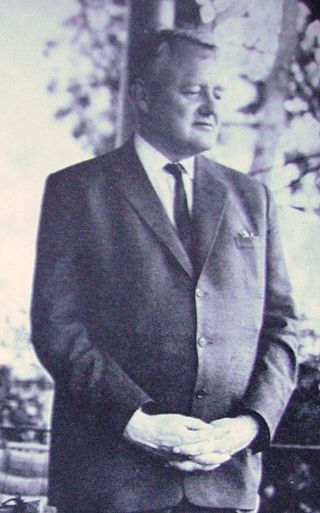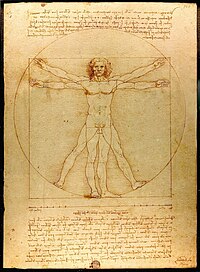Secularism is the principle of seeking to conduct human affairs based on naturalistic considerations, uninvolved with religion. It is most commonly thought of as the separation of religion from civil affairs and the state and may be broadened to a similar position seeking to remove or to minimize the role of religion in any public sphere. Secularism may encapsulate anti-clericalism, atheism, naturalism, non-sectarianism, neutrality on topics of religion, or antireligion. As a philosophy, secularism seeks to interpret life based on principles derived solely from the material world, without recourse to religion. It shifts the focus from religion towards "temporal" and material concerns.

Secular humanism is a philosophy, belief system, or life stance that embraces human reason, logic, secular ethics, and philosophical naturalism, while specifically rejecting religious dogma, supernaturalism, and superstition as the basis of morality and decision-making.

Religious humanism or ethical humanism is an integration of nontheistic humanist philosophy with congregational rites and community activity that center on human needs, interests, and abilities. Religious humanists set themselves apart from secular humanists by characterizing the nontheistic humanist life stance as a non-supernatural "religion" and structuring their organization around a congregational model.

The National Secular Society (NSS) is a British campaigning organisation that promotes secularism and the separation of church and state. It holds that no one should gain advantage or disadvantage because of their religion or lack of it. The Society was founded in 1866 by Charles Bradlaugh.

Paul Kurtz was an American scientific skeptic and secular humanist. He has been called "the father of secular humanism". He was Professor Emeritus of Philosophy at the State University of New York at Buffalo, having previously also taught at Vassar, Trinity, and Union colleges, and the New School for Social Research.

Humanistic Judaism is a Jewish movement that offers a nontheistic alternative to contemporary branches of Judaism. It defines Judaism as the cultural and historical experience of the Jewish people rather than a religion, and encourages Jews who are humanistic and secular to celebrate their identity by participating in relevant holidays and rites of passage with inspirational ceremonies that go beyond traditional literature while still drawing upon it.

Humanists UK, known from 1967 until May 2017 as the British Humanist Association (BHA), is a charitable organisation which promotes secular humanism and aims to represent "people who seek to live good lives without religious or superstitious beliefs" in the United Kingdom by campaigning on issues relating to humanism, secularism, and human rights. It seeks to act as a representative body for non-religious people in the UK.

The Norwegian Humanist Association is one of the largest secular humanist associations in the world, with over 130,000 members. Those members constitute 2.3% of the national population of 5.47 million, making HEF by far the largest such association in the world in proportion to population. The association publishes the magazine Fri tanke.

Christian humanism regards classical humanist principles such as universal human dignity, individual freedom, and the importance of happiness as essential and principal or even exclusive components of the teachings of Jesus.

Humanism is a philosophical stance that emphasizes the individual and social potential, and agency of human beings, whom it considers the starting point for serious moral and philosophical inquiry.

The Icelandic Ethical Humanist Association is a humanist lifestance organization in Iceland, that promotes secularism, offers celebrancy services and contributes to the spreading of humanism in Iceland and abroad. It is a member of the European Humanist Federation and Humanists International.

Per Arvid Ingemar Hedenius was a Swedish philosopher. He was Professor of Practical Philosophy at Uppsala University (1947–1973). He was a famous opponent of organised Christianity. The Swedish Humanist Association, known in Sweden as "Humanisterna", offers the Ingemar Hedenius Award each year to support humanist ideas and critical thinking.
Secular coming-of-age ceremonies, sometimes called civil confirmations, are ceremonies arranged by organizations that are secular, which is to say, not aligned to any religion. Their purpose is to prepare adolescents for their life as adults. Secular coming of age ceremonies originated in the 19th century, when non-religious people wanted a rite of passage comparable to the Christian confirmation. Nowadays, non-religious coming-of-age ceremonies are organized in several European countries; in almost every case these are connected with humanist organisations.

In 2022, the constitution of Belgium provides for freedom of religion. The law prohibits discrimination based on religious orientation; however federal law bans face-coverings being worn in public.

Humanism is an approach in study, philosophy, or practice that focuses on human values and concerns. Articles related to humanism include:
Norway is a comparatively secular nation which no longer has a state religion, though 68.7% of the 5.4 million population belong to the Church of Norway.
Irreligion in Finland: according to Statistics Finland in 2020, 29.4% of the population in Finland were non-religious, or about 1,628,000 people. The Union of Freethinkers of Finland and other organisations have acted as interest organisations, legal protection organisations and cultural organisations for non-religious people. In a 2018 international ISSP survey, 40% of the Finnish population said they did not believe in God, 34% said they believed in God and 26% did not know. Nearly one out of every five people in the country is not a member of a religious organisation, and the number of people with no religious affiliation has doubled in two decades.

The Humanistischer Verband Deutschlands is an organisation to promote and spread a secular humanist worldview and an advocate for the rights of nonreligious people. It was founded 1993 in Berlin and counts about 20,000 members. The HVD is a member of the International Humanist and Ethical Union and the European Humanist Federation.









